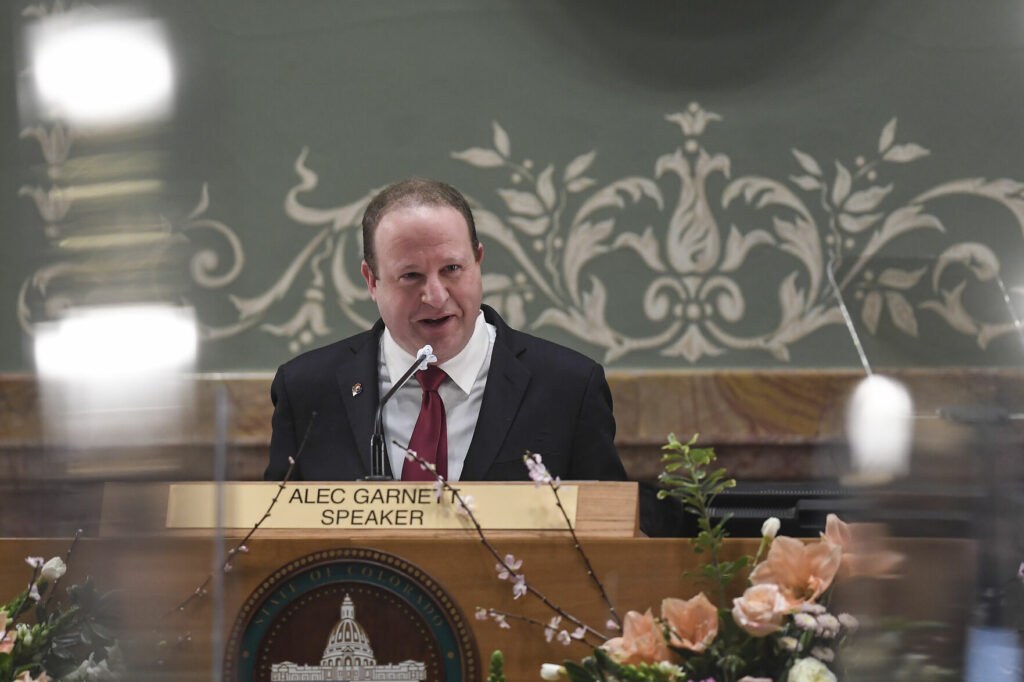‘The moral high ground’: General Assembly Republicans see wins in the losses | 2023 LEGISLATIVE SESSION

Endless hours of filibustering, numerous instances when bills were read at length, and a walkout.
That characterized much of what the public saw and heard of House Republicans during the 2023 session.
The 2023 session started with historically low Republican representation, just 19 members out of 65 in the House, a decline of five seats. In the Senate, the number stood at 12 out of 35, a loss of three seats.
That meant being on the losing end of the session’s most high profile legislative fights: abortion, gun safety and at the end of the session, property taxes.
And while their numbers weren’t enough to stop the bills they most disagreed with, Republicans were able to gain concessions here and there.
The bill to raise the age of purchasing a firearm from 18 to 21 started off as both a restriction on purchase and possession. But negotiations yielded changes that allowed possession for those under 21 who are enrolled in shooting sports, or who must defend livestock.
In the House, the name of the game was delay, whether it meant asking for bills to be read at length – at least 28 times, mostly in the last half of the 2023 session – or filibustering measures, even ones they supported.
A temporary truce was called when the state budget came over to the House, with Republicans trading the opportunity to have the 690-page bill read at length, which would have taken around 18 hours, for the opportunity to attend Good Friday and Easter services.
After the Easter truce, the delay tactics were trotted out again in the House, and Democratic leaders responded by invoking rules to limit debate – 15 times for House Rule 14 – and immediately ending debate through a mechanism known as calling the question – 8 times for House Rule 16.
The end result was a walk-out by House Republicans on the last day when Democrats allowed for third-reading amendments to be added to Senate Bill 303 but rejected Republican requests for their amendments. They did not return for the rest of that last day.
House Minority Leader Mike Lynch, R-Wellington, said he believes his cause gained respect from the parts of Colorado that aren’t Denver or Boulder for “standing by our principles” on many issues that they disagreed with Democrats.
And as controversial as the walkout was, “we made a statement that we’re serious about how bad some of these things are.”
“That’s who Republicans are,” Lynch added.
The Senate Republican caucus used different tactics to get their points across, according to Senate Minority Leader Paul Lundeen, R-Monument.
“We gained by stopping a lot of bad policies that were socialism in their original offering,” he said. Lundeen cited behind-the-scenes efforts on fair workweek (House Bill 23-1118) that died in its first House committee and House Bill 23-1078, which would require employers pay for a “dependent allowance” for dependents of people on unemployment, and which died in a Senate committee.

“We gained the moral high ground by virtue of being able to press our case in a meaningful, insightful and compelling way,” Lundeen said.
Senate Republicans used Senate rules to their advantage, Lundeen said, and that created more opportunities to express their perspective and to make compelling arguments for Republican bills and against Democratic bills, rather than using tactics like bills read at length.
“When you’re not making your case, and having a machine read a piece of legislation, you aren’t doing the most work you can do,” he said. “I believe you need to do the hard work, to make the case your ideas are better, and that’s what a republican form of government and democracy are about.”
Senate Republicans had at their disposal the ability to have bills read at length, but they also had the champion orator of the senate – Sen. Bob Gardner of Colorado Springs – to speak when they needed time to negotiate. As a result, only one bill was read at length – a 7-pager on a drug crimes task force.














